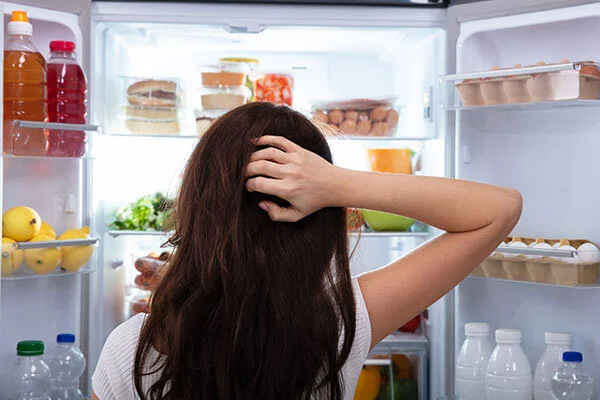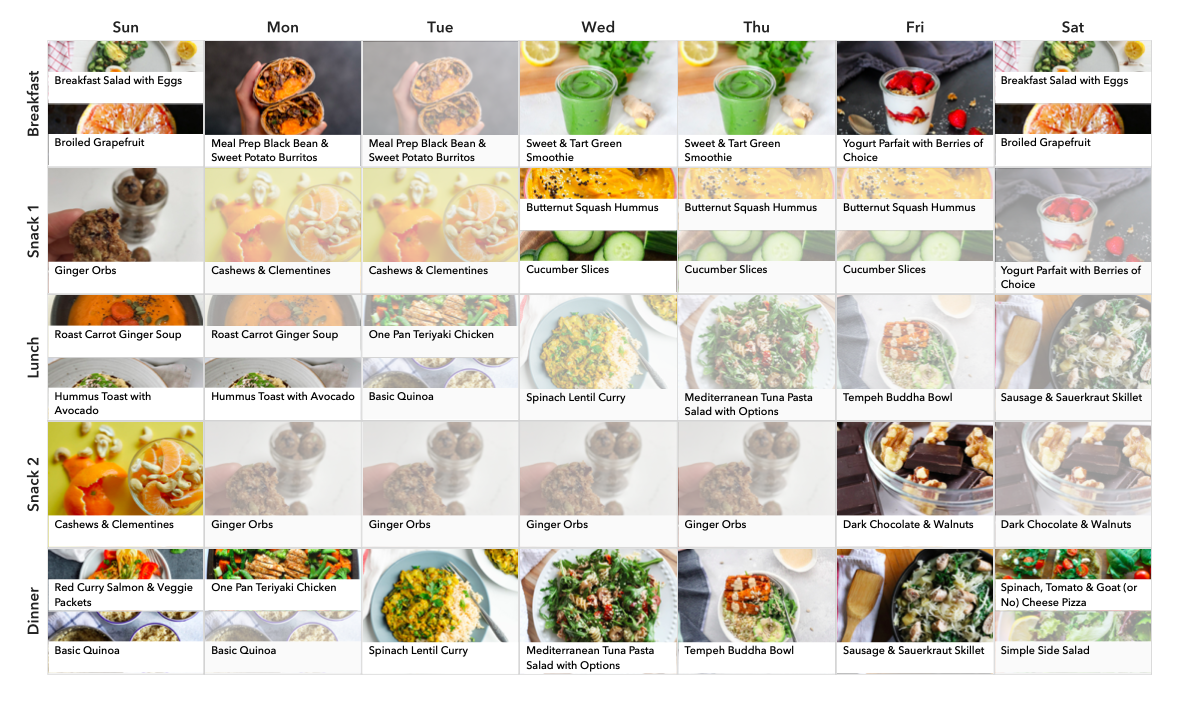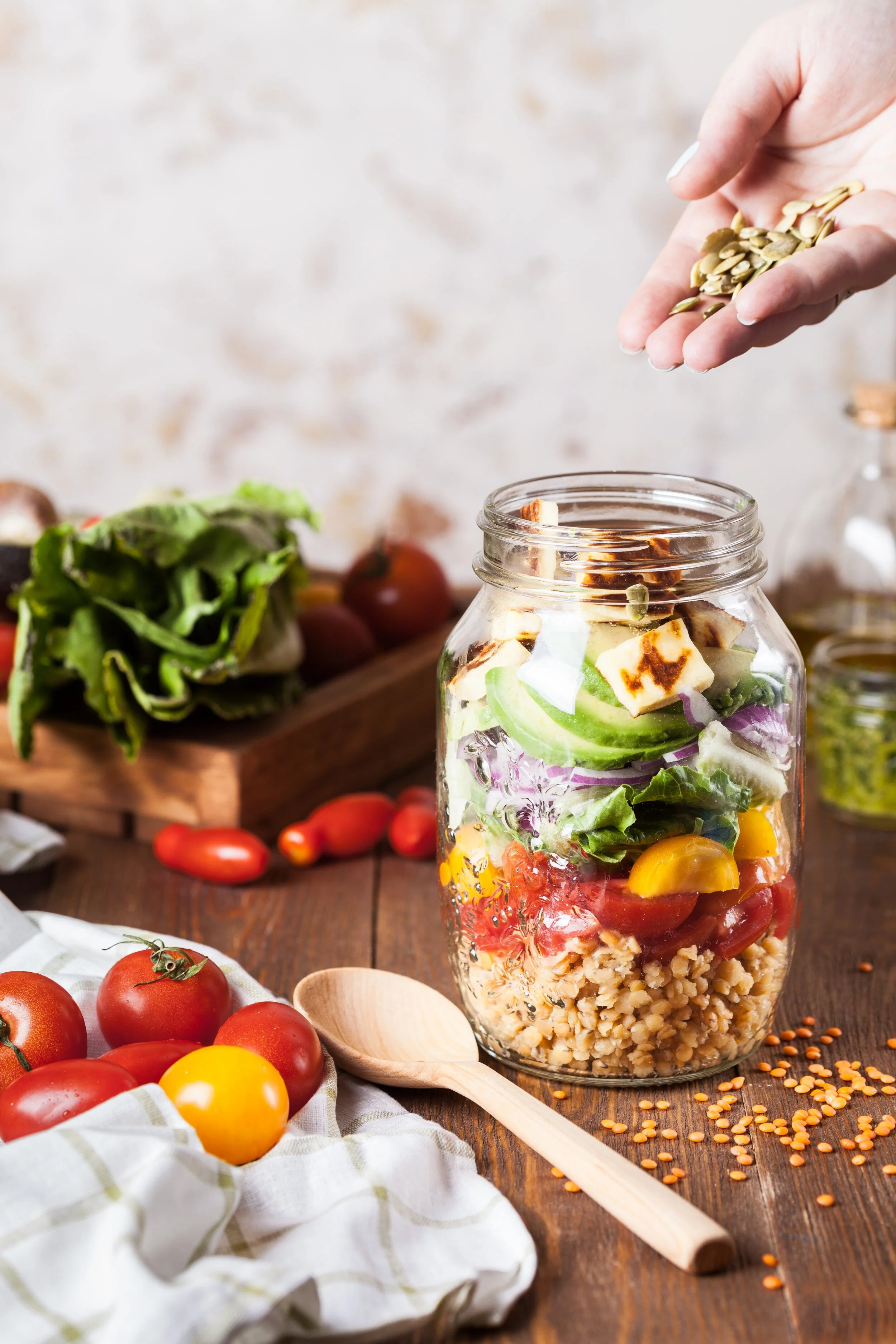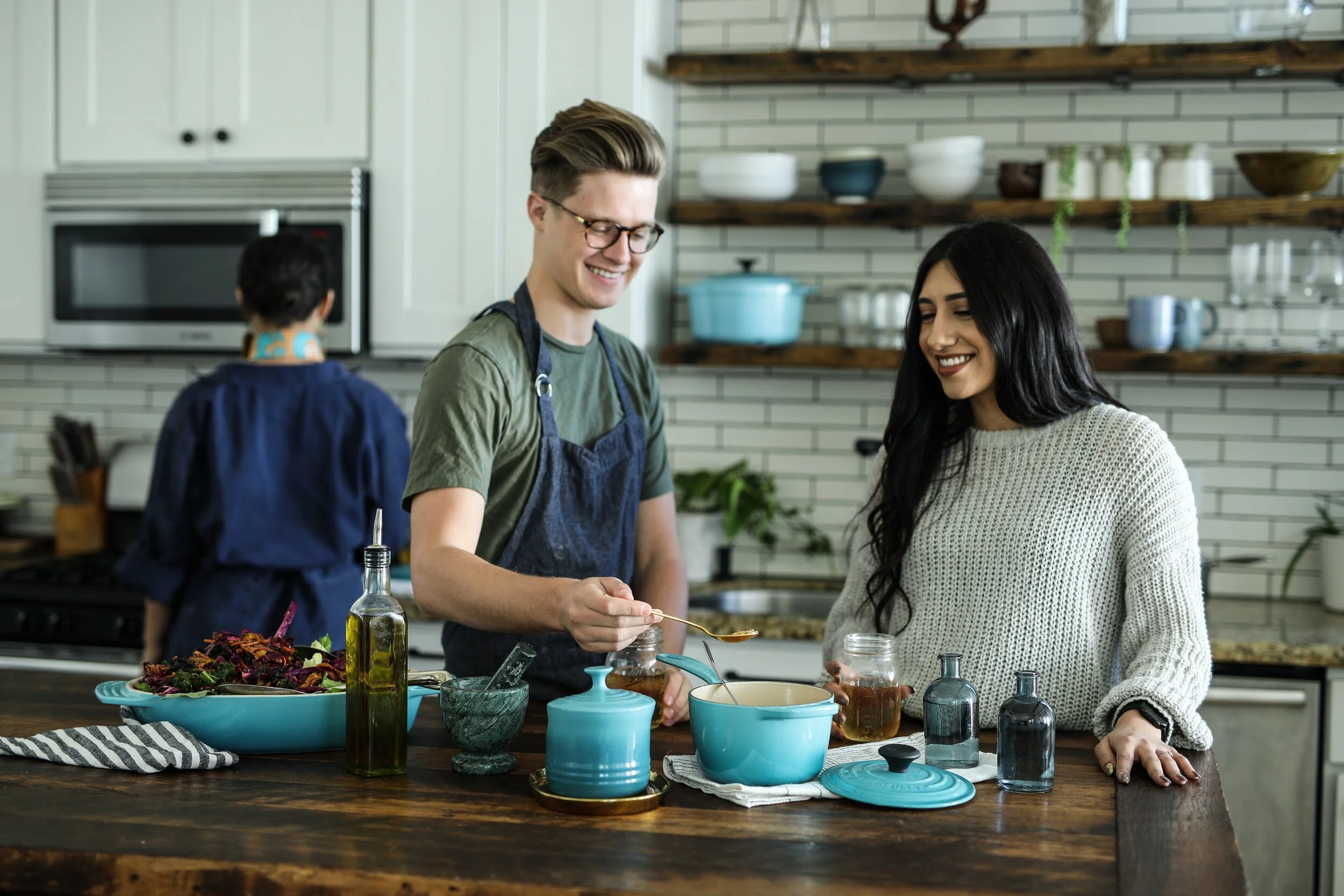5 Ways to Reduce Decisions In the Kitchen
/How many times this week have you stared into your refrigerator asking yourself what you should eat? Only to feel that tinge of stress or anxiety in the gut because you’re already hungry but you just don’t have the energy to decide what to make and then follow through with actually making it.
I’ve gotten to a point where I absolutely need less decisions in my life. It seems as though the simplest questions, “do you want eggs this morning?” or “what should I wear?” feel like monstrously stressful, unanswerable questions. The decision fatigue is real.
This is what happens when we are stressed or in a state of overwhelm. There is so much happening right now that our brains (and bodies) are being faced with onslaughts of information. Whether it’s from the news cycle, seemingly daily changes in how to vote, deciding whether or not your kids will attend physical school, figuring out how you will balance working from home, and on and on.
The kitchen can be a place of creativity, meditative action, and nourishment. Lately though, it seems a place of monotony, exhaustion, and lingering questions that I simply do not have the energy (or excitement) to answer. This is a big red flag for me, someone that enjoys being in the kitchen.
Here are five ways that I am reducing daily decisions around food so that I can have decision energy in other areas of life, as well as, find more joy and ease in the kitchen during an otherwise, stressful time.
Routine.
Keeping a routine around meal times sounds like such a simple thing that wouldn’t make much of a difference but it truly does. By having consistent times that you consume meals, you are doing two things:
First, you are sending signals to your nervous system that you are safe. When our body knows exactly what time food is coming each day then the body is less likely to go into a place of panic or sympathetic (fight or flight). Activating the sympathetic nervous system impacts our hormones (stress hormones included!), digestion, and weight. When we are in this place of fight or flight, it can make it even harder to make the simplest of decisions because our body believes that we are in an unsafe situation.
Second, it gets us physically moving into the kitchen around set times. This can reduce the amount of time spent sitting at your computer putting off making decisions about food, which only adds to more stress when you do have to make a choice. If I eat lunch at noon then I move to the kitchen at noon and have to make a decision, rather than when I have no set time and can push my limits doing something else which ultimately leads to a food crash which makes it even harder to make food decisions.
Meal Plan.
Having a plan ensures that you won’t have times/days when you stare into the fridge for answers. Sure, it does take a bit of time at the start of the week but in the long run it will save you time, money, reduce food waste, and reduce your daily decisions around meals. There is nothing quite like looking at your meal plan when it is time for your next meal. All thought is removed from the process so that you can simply make the food and enjoy eating.
If meal planning sounds like a big leap for you right now, start by planning one meal a week. Then you can gradually build over time. If you’re ready to plan more than one meal, themes can help planning. Ex. Mon = plant-based, Tues = tacos, Fri = stir fry, Sun am = slow breakfast, etc. A format like this can funnel choices into categories and feel much more manageable.
If all of this still feels like too much at this time, you can hire someone (like FTF!) to meal plan for you. Hiring someone to create your meal plan is a supportive way to practice following a plan without the decisions that go into planning. This experience can be a bridge toward planning for yourself.
Meal Prep.
This simple act takes a bit of thought in the beginning (just like meal planning) but is the greatest gift to weeknight dinners! Meal prep is the act of preparing ingredients, and even full-on meals, in advance to make for easier work on the day of consumption. I do not suggest jumping into this one and trying to prep everything in advance. It may be nice for a week but it will surely lead to burn-out in the end if this is a new practice for you.
Start by prepping one thing for this coming week. This can look like: sliced veggie sticks for snacking throughout the week; cutting all of the vegetables for a curry or stir fry that will be made later in the week; cooking a couple of chicken breasts to have for salads throughout the week; making a salad dressing; assembling smoothie packs; overnight oats for breakfasts; or making a batch of quinoa to use throughout the week. I recommend that you pick one thing to prep, based upon your meal plan.
Batch Cook.
This is the easiest way to start removing food decisions from your life. Batch cooking is the act of making more food than you need with the intention of using it as leftovers or storing it in the freezer for future use.
Some ideas for batch cooking are: make soup or chili that can be kept in single size portions in the freezer; lasagna assembled and frozen into smaller portions (I like bread pan lasagnas for two); baking pancakes or muffins and storing in the freezer for future use; baking granola to store for the next couple of weeks; making a double batch of pasta sauce so that you can freeze some; etc. I think you get the idea.
This feels like the easiest place to start because you are basically taking a meal or item that you plan to make and eat immediately and doubling or tripling the recipe to freeze some for future meals.
Transition Gradually with Support.
I’ve suggested a few times to start with picking one item at a time. Plan one meal. Prep one thing. If you are thinking, “yeah but, I thought the point was to reduce decisions? I don’t even have capacity for that right now!” then you’re in luck. You can join The Cooking Collective. In this affordable, group program, you will get 2 recipes each week for 4 weeks. This is a great way to get inspired in the kitchen without having to spend hours online searching for recipes. This will provide one less decision that you have to make about what to eat each week for the duration of the program. Plus, it will be in (virtual) community with others that are doing the same thing. Sometimes this can be all the motivation and support that we need to try new things without feeling overwhelmed. If you’re interested, you can learn more here.
Whatever tip you choose to try this coming week, do so with the lens of a beginner. There is no pressure or expectation here. Only play, trials, and practice to support yourself in the long run. We have a lot of decisions that we make on a daily basis so why not loosen that stress a little bit by gradually making changes to support your overall capacity. Release food decisions so that that energy can be put into much more important decisions in life.
What one thing will you do this coming week to have one less decision to make later on? Let us know in the comments below.





